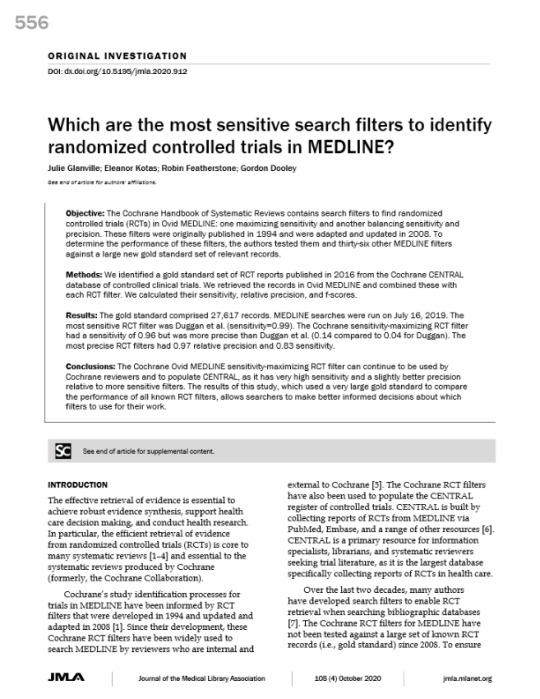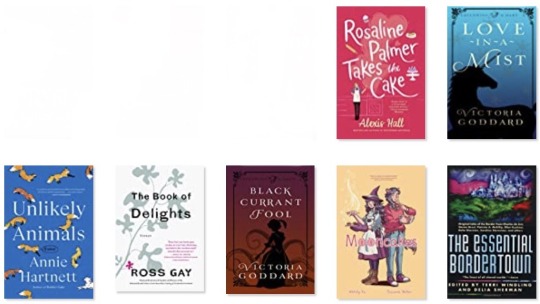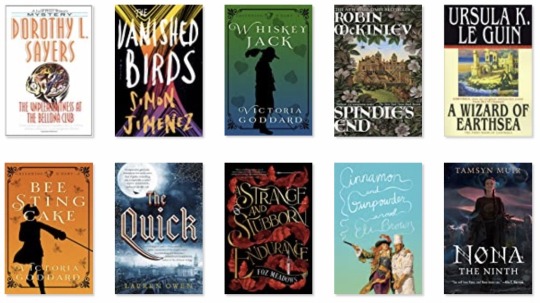#Cochrane Library
Text
Will The Flu Shot Protect Me From This Year's Flu?
110925-N-SF704-056.jpg (Photo credit: Commander, U.S. 7th Fleet)
Short answer: maybe, depending on your age.
Full answer: Every year the CDC estimates the effectiveness of the vaccine. This year’s estimate is 62% (Complete study abstract below). If you look at the Lancet meta-analysis of all the studies, the average effectiveness rate is 69%. So we’re not doing well even by the CDC’s…

View On WordPress
#Advisory Committee on Immunization Practices#Canada#CDC#Centers for Disease Control and Prevention#Cochrane Library#Influenza vaccine#Lancet#United States
0 notes
Text
What are Systematic Reviews?
If someone decides to look critically at articles that have appeared in the medical or health literature on a particular topic they are said to be ‘reviewing the literature’. The authors may review, say, all the drug treatments available for one type of heart disease. A review is very clearly defined and sets out to find what evidence there is for prescribing one particular intervention or drug in a specific health condition, often in a certain group of people.
Examples of review topics are: Single dose celecoxib for acute postoperative pain; Artichoke leaf extract for treating hypercholesterolaemia; Chocolate avoidance for preventing migraine; Etidronate for treating and preventing postmenopausal osteoporosis. What is a systematic review?
A systematic review summarises the results of available carefully designed healthcare studies (controlled trials) and provides a high level of evidence on the effectiveness of healthcare interventions.
The review authors set about their task very methodically following, step by step, an advance plan that covers:
the way existing studies are found;
how the relevant studies are judged in terms of their usefulness in answering the review question;
how the results of the separate studies are brought together to give an overall measure of effectiveness (benefits and harms) – statistical techniques used to combine the results are called meta-analysis.
0 notes
Text

[2750/11080] Crested caracara - Caracara plancus
Order: Falconiformes (falcons and caracaras)
Family: Falconidae
Subfamily: Polyborinae (caracaras)
Photo credit: Connor Cochrane via Macaulay Library
163 notes
·
View notes
Text

Calla Lilies by George Cochran Lambdin (1830-1896).
Published 1861-1897 by L. Prang & Co.
Boston Public Library, Print Department.
Wikimedia.
319 notes
·
View notes
Text
The thing I can’t get over is how many people sincerely think they understand research well enough to read it when they very clearly CAN’T. If you read a study that says “(95% CI: 1kg)” that means something. It means something VERY FUCKING REAL. It means that, if I ran this study so many times that I eventually covered every single possible person, I am confident that The True Number I am looking for would be within a certain margin of 1kg. 2.2 pounds. A confidence interval MEANS something. You can’t just skip it because you don’t understand WHAT and expect to still understand the study as a whole and whether the authors are correctly representing their findings. You also can’t treat a library of topical reviews, like UpToDate, or meta-analyses, like Cochrane Reviews, the same way you treat a single study. And the REASON you can’t do that is traceable back to the statistical processes they use. The stats involved in a meta-analysis are not the same as the stats in a single study. The likelihood of a type I error, falsely seeing significance when you shouldn’t, drops dramatically. So maybe TAKE A FUCKING STATS CLASS before lecturing ME on it ya goobers!
118 notes
·
View notes
Text
The stance by the Centers for Disease Control and Prevention (CDC) on face masks has taken many twists and turns throughout the COVID pandemic.
After initially claiming face coverings weren’t necessary, the CDC changed course in April 2020, calling on all Americans — even children as young as 2 years old — to mask up.
That September, then-CDC Director Dr. Robert Redfield said during a Senate hearing that “face masks are the most important powerful health tool we have,” even suggesting that they might offer more protection than vaccines.
Those recommendations likely played a large part in 39 U.S. states eventually enacting mask mandates.
Now, a new scientific review — led by 12 researchers from esteemed universities around the world — suggests that widespread masking may have done little to nothing to curb the transmission of COVID-19.
Published by Cochrane Library, the review dug into the findings of 78 randomized controlled trials to determine whether “physical interventions” — including face masks and hand-washing — lessened the spread of respiratory viruses.
When comparing the use of medical/surgical masks to wearing no masks, the review found that “wearing a mask may make little to no difference in how many people caught a flu-like illness/COVID-like illness (nine studies; 276,917 people); and probably makes little or no difference in how many people have flu/COVID confirmed by a laboratory test (six studies; 13,919 people).”
Next, the review compared medical/surgical masks to N95 respirators (or P2 respirators, which are used in Europe).
It found that “wearing N95/P2 respirators probably makes little to no difference in how many people have confirmed flu (five studies; 8407 people); and may make little to no difference in how many people catch a flu-like illness (five studies; 8407 people), or respiratory illness (three studies; 7799 people).”
The 78 studies looked at participants from countries of all income levels.
Data was gathered during the H1N1 flu pandemic in 2009, non-epidemic flu seasons, epidemic flu seasons up to 2016 and the COVID-19 pandemic, the study authors wrote.
Doctor says review had some key limitations
The new findings seem to call into question the CDC’s enthusiastic embrace of widespread masking.
However, Dr. Marc Siegel, professor of medicine at NYU Langone Medical Center and a Fox News medical contributor, pointed out a key limitation: “The researchers focus primarily on randomized trials, but most of the studies that have been done on masks are population studies,” he said.
“There are very few randomized trials on masks.”
In a randomized trial, researchers place participants in different groups and observe the results in a controlled environment.
By contrast, population-based studies measure outcomes in a “real-world” setting.
The study authors did admit to some limitations and a risk of bias, including the low number of people who followed mask guidance and the wide variation of outcomes.
“The results might change when further evidence becomes available,” they wrote.
‘Be sure of consistency’
Dr. Siegel said he has never supported mask mandates.
He believes that while masks might be effective on an individual level, they don’t work as well on a population level.
“If you’re going to mandate something, you’d have to be sure of consistency across the population, and that’s never happened,” he said.
However, the physician pointed out that the CDC never actually mandated masks — with the exception of a public transportation mandate in January 2021.
“It was the state and local authorities that took the CDC’s recommendations and implemented the mandates,” Dr. Siegel said.
“The recommendations may have been wrong, but the CDC doesn’t deserve the blame for everything. I think they were aware that masks may have value on a personal basis, but they got carried away with the politics.”
What do you think? Post a comment.
As of right now, no U.S. states have mask mandates in place.
On Sunday, New York dropped its state-wide mask requirement in hospitals — leaving the decision up to individual facilities. Many healthcare facilities are currently still requiring them.
258 notes
·
View notes
Text
Still can't work out what the actual point of the Cass report is. I've still not managed to properly read it but it does seem that its content is way tamer and more trans positive than the reporting on it would suggest, but moreover, there doesn't seem to be any sense in which it compels anyone to do or not do anything at all? Like it's primarily talking about medical handling of trans issues, but there are accepted ways of collecting and presenting evidence on medical issues that the UK medical establishment are supposed to listen to, and those are:
NICE (National Institute for Health and Care Excellence) Guidelines and NICE Care Quality Standards - this is neither
Advice presented in a widely-used platform for constantly-updating summaries of the evidence on a subject intended to be used as a point-of-care tool - especially the Clinical Knowledge Summaries created by NHS LKS, or BMJ Best Practice (to which the NHS has a national subscription).
a Cochrane Review, or a peer-reviewed Systematic Review in a high-impact journal - this is the 'Gold Standard' of medical evidence on which the above sources base their recommendations, and on which Trusts will base their local policies if there isn't NICE guidance on the subject
When no NICE guidance exists, the topic isn't covered by respected evidence summary formats, and no high-quality Systematic Reviews exist for this subset of the problem, a Trust may create local standards, via a rapid and/or scoping review process. This guidance is likely to be developed initially by whatever Trust has the biggest specialist centre for a given health concern and then copied by other Trusts.
There's a lot I still don't know, so I could have it wrong! But I'm not aware of anywhere that 'government reports' fit into the stuff people are supposed to look at to guide them in making medical decisions.
LKS = Library and Knowledge Services
BMJ = British Medical Journal
14 notes
·
View notes
Text
Untitled Wednesday Library Series, Part 138
In much the same spirit as Part 134, this week (or my week, at least) concerns itself with search filters for citation databases. Some of this might seem familiar if you happen to have caught that entry, though on the whole this is probably slightly less crunchy.
Glanville, Julie et al. “Which are the most sensitive search filters to identify randomized controlled trials in MEDLINE?.” Journal of the Medical Library Association : JMLA vol. 108,4 (2020): 556-563. doi:10.5195/jmla.2020.912
You can find the full text for free on the relevant PubMed Central entry.

The How
Hand searching, if you can believe it. I want to say I found this in Library and Information Science Abstracts, but it's been a while — I can't remember whether JMLA is indexed there and I don't suppose you'll come after me if I don't check mid-sentence. One such database. Like most other things, they're all the same except when they aren't.
The Text
Conducting and publishing randomized controlled trials (RCTs) is a thing a lot of people care a lot about. You can picture the result as a kind of bibliographic slurry — I'm avoiding the word slush, which might also fit but would require a different kind of post entirely — that needs processing and post-processing to yield anything very useful. Squeezing citations out of a database in a validated and reproducible manner is the work of search filters. In their simplest form, these are nothing more than strings to be copied and pasted into website search bars.
Filters for RCTs have been around for several decades, but the most widely used were published by an organization called Cochrane in 2008 as an update to an even older set (mostly from 1994). This paper tests those and 36 others — attempts to update or meet different needs than the Cochrane filters — against a pool of 29,428 studies that the authors suggest they all ought to retrieve. The major result is a table of filter performance in sensitivity (that is, recall), precision, and f-score (something like an average of the previous two metrics).
Mechanically this is very simple, but practically it would've been a heroic slog. Identifying a few filters to test is the work of an hour; scrubbing the MEDLINE database with them is a short afternoon; wrangling clean citation files and tabulating performance across this many options is just silly. This sort of review is very uncommon for a reason.
I should note that two of these authors, Glanville and Dooley, had one of their own filters adapted by Cochrane for a special update of their handbook in 2019. This is, it won't surprise you to know, a very small field. People who do this work tend to do a lot of it.
The Object
Does what it ought to.
The Why, Though?
Because of my thesis, or rather the paper that turned into a proposal for it (or, more honestly, because I needed a tight bibliography for non-medical information retrieval wonks to justify the proposal in the first place). I don't have much to do with RCTs on any real scale, thank goodness, but I have lots of good reasons to want to reverse engineer the workflows that made this project possible.
12 notes
·
View notes
Text
So we aren't the kind of bookstore that's really able to do much with antique books and as a general rule don't take them because. Well. They get destroyed out there. But someone brought one in and I paid them for it just so I can take it home because I could not STAND to think of them getting tired of carrying it around and just tossing it out 😭 it's the sweetest little yellow hardback, and the guy who owned it signed and dated it (1899) and put his very fancy personal library stamp through a couple of pages and sksksksk Garrett Cochran don't worry dude, I will take care of it for you
4 notes
·
View notes
Text
Cochrane's Health Evidence - How it can Help you
"Cochrane summarizes the findings so people making important decisions – you, your doctor, the people who write medical guidelines – can use unbiased information to make difficult choices without having to first read every study out there..."
Sifting the evidence, The Guardian, 14 September 2016
Cochrane produces systematic reviews of primary research in human health care and policy. Each Cochrane Review addresses a clearly formulated question; for example:
Can antibiotics help in alleviating the symptoms of a sore throat?
To answer this question, we search for and collate all the existing primary research on a topic that meets certain criteria; then we assess it using stringent guidelines, to establish whether or not there is conclusive evidence about a specific treatment. Cochrane Reviews are internationally recognized as the highest standard in evidence-based health care and we publish them online in the Cochrane Library.
We update Cochrane Reviews regularly to incorporate new research, so that you can base treatment decisions on the most up-to-date and reliable health evidence.
0 notes
Text


OCTOBER 2022 WRAP UP
TOTAL: 17
FAVORITES: Nona the Ninth by Tamsyn Muir; Unlikely Animals by Annie Hartnett, A Strange and Stubborn Endurance by Fox Meadows; Spindle’s End by Robin McKinley; The Essential Bordertown ed. Terri Windling
REREADS: Greenwing & Dart (series) by Victoria Goddard
BOOKCLUB: Mooncakes by Wendy Xu/Suzanne Walker
DNF: Born Wicked by Jessica Spotswood; Tantalize by Cynthia Leitich Smith; Berried Secrets by Peg Cochran
What to say? I loved Nona and will be doing it again on audiobook in November; Greenwing & Dart is still so so good on a reread and I’m fighting the urge to either rec it to people who like the current group dynamic in Dracula but want something lighter, OR come up with an elaborate Dracula AU; I bounced hard off of the writing in Berried Secrets but passed my print copy off to my mom and she loved them and I’m very happy for her!
In the meantime, I really ought to be starting my reread of The Hands of the Emperor, what with the sequel coming out in mere WEEKS omg. Very sad news for my library books I haven’t touched lol. And if anyone has a more hopepunk Bordertown comp, please know you will have my undying gratitude forever and ever 🥺
#book log#bec posts#wrap up#monthly wrap up#2022#Greenwing & dart#Victoria Goddard#spindles end#the vanished birds#a strange and stubborn endurance#Bordertown#borderlands#Nona the ninth#unlikely animals#wrap up 2022#Greenwing and dart
31 notes
·
View notes
Text
If you are looking for information about medical conditions, I recommend using PubMed. Its public and free, and very easy to use: just type in a condition and enter search! Using the filters on the page you can find only free-to-read articles and pick the type of text you want to read (for general info, reviews are best). You can even select the year of publication and use advanced settings to further narrow searches.
Other services by the NCBI are PubMed Health and the NIH medical libraries (genes, molecules, etc) that have similar interfaces and link to other pages. You can also use Cochrane and UpToDate but those usually have their articles paywalled and are only free for medical students. If you want to access them, use 12ft.io and SciHub.
30 notes
·
View notes
Text

Spacebar 20 May 2023
Third Space Saturday
The Set 2100 to 0153
Sade, Hang On To Your Love (12”, Long Version)
Joe Jackson, Steppin’ Out (12” 45 RPM CUT)
INXS, The One Thing (Extended Version from the Deka-Dance ep)
Cameo, Back and Forth (7” edit, on the 12” single)
Prince, I Wanna Be Your Lover (7” 45)
Haircut One Hundred, Love Plus One (7” 45)
Police, Roxanne (7” 45)
UTFO, Roxanne Roxanne (7” 45)
Soho, Hippychick (12” Cut)
Lakeside, Fantastic Voyage LP CUT
Mark Morrison, Return Of The Mack LP CUT
Bee Gees, Jive Talkin’(7” 45)
Alan Jackson, Chattahoochie (7” 45)
Michael Jackson, Workin’ Day And Night (7” 45)
Bay City Rollers, Saturday Night (7” 45)
S.O.S Band, Take Your Time (Do It Right) (7” 45)
David Bowie, Let’s Dance 12” cut, long version
Stealers Wheel, Stuck In The Middle With You (7” 45)
Average White Band, Pick up The Pieces LP CUT
Amii Stewart, Knock On Wood (12” Cut)
Human League, Human (12” Cut)
Orb, Little Fluffy Clouds (12” Cut)
Commodores, Lady (You Bring Me Up) (7” 45)
Mos Def, Ms. Fat Booty (12” Cut)
Scritti Politti, Sweetest Girl (12” Cut)
Abyssinians, Declaration Of Rights LP CUT
Kate Bush, Sat On Your Lap (7” 45)
Cheryl Lynn, Got To Be Real (7” 45)
Soft Cell, Tainted Love (7” 45)
Generation X, Dancing With Myself (7” ep )
Dry Cleaning, Scratchcard Lanyard (7” 45)
Tommy Tutone, 867-5309 (7” 45)
Junior, Mama Used To Say (12” Cut)
Siouxsie & The Banshees, Peek-A-Boo (12” Cut)
Kylie Minogue, Can’t Get Blue Monday Out Of My Head (12” Cut)
DEVO, Snowball (remix) (7” 45)
TLC, No Scrubs (12” Cut)
Vince Staples, Norf Norf LP CUT
Apollonia 6, Sex Shooter (12” Cut)
Pet Shop Boys, West End Girls (12” Cut)
Nazareth, Hair Of The Dog LP CUT
Rufus Thomas, Walking The Dog (7” 45)
ZZ Top , Beer Drinkers & Hell Raisers LP CUT
Bob Seger System, Ramblin Gamblin Man LP CUT
Cure, The Walk EP CUT
Sleaford Mods, Nudge It LP CUT
Presidents Of The United States Of America, Lump LP CUT
Ruts, Babylon’s Burning LP CUT
Cramps, What’s inside A Girl (12” Cut)
Cypress Hill, How I Could Just Kill A Man (12” Cut)
Killing Joke, Follow The Leaders LP CUT
Stooges, Loose LP CUT
Bad Brains, Pay To Cum (7” 45)
Rick James, Super Freak (12” Cut)
Climax Blues Band, Couldn’t Get It Right (7” 45)
Cyndi Lauper, Girls Just Want To Have Fun (7” 45)
Link Wray & His Ray Men, Rumble LP CUT
Thin Lizzy, Boys Are Back In Town LP CUT
Jay-Z, 99 Problems LP CUT
Gap Band, You Dropped A Bomb On Me LP CUT
Cars, Gimme Some Slack LP CUT
Booker T & The MG’s, Hip-Hug Her LP CUT
Ice Cube, Amerikkka’s Most Wanted (12” Cut)
Leroy Sibbles, Express Yourself LP CUT
Heatwave, The Groove Line (7” 45)
Fred Schneider & The Shake Society, Monster (12” Cut)
G.Q., Boogie Oogie Oogie (7” 45)
Devon Russell, Move On Up LP CUT
The Clash, White Man In Hammersmith Palais (7” 45)
Ray Bryant Combo, Madison Time LP CUT
Eddie Cochran, Twenty Flight Rock LP CUT
Moon Mullican, Seven Nights To Rock LP CUT
Fugazi, Song Number One (7” 45)
Laid Back, White Horse (12” Cut)
Kendrick Lamar, YAH LP CUT
I was late. Did yardwork and took a walk, and got my wife out the door to her night shift. Then I dozed off. Woke up, got going.. Did not prepare anything different for the night. I just took an extra box of 45's. I need to get the library together! I have a lot of records, in no real order…..
Order. Maybe that’s not who I am. I have to try. Who knows whether I will keep it together, but I’m going to have to try, just to honor the creators of these records, to serve the interests of the people who provide the theater of operations I’m working in, and to the people who wander in, to have a drink, to play a game or make a connection somehow. At the very least, do no harm to the vibe.
LEAVE THE VIBE CAMPSITE IN BETTER CONDITION THAN YOU FOUND IT!
2 notes
·
View notes
Text
Anthony Fauci has sparked a backlash from politicians and commentators after saying that wearing face masks protects individuals from spreading coronavirus, but that there was inconclusive evidence to suggest it prevented a pandemic spiraling at a whole population level.
The former chief medical adviser to the president, who was regularly the face of the government's response to the pandemic, told CNN on Saturday that "an individual protecting themselves or protecting them from spreading it, there is no doubt that masks work," amid a spike in infections of the virus and speculation that fresh COVID restrictions could be on the horizon.
"Fauci admits that masks don't work for the public at large but still absurdly claims masks work on an individual basis," Rand Paul, a Republican senator for Kentucky who was suspended from YouTube in 2021 for questioning mask wearing, wrote on Sunday in one of many critical responses to the interview. "More subterfuge."
Some private institutions, hospital operators and colleges have reintroduced the requirements for staff or visitors to wear masks while at their sites to limit the spread of the new variants—EG.5 and BA.2.86—which have recently emerged. The moves sparked concerns that nationwide restrictions could be set to return.
In the week to August 19, there were more than 15,000 hospitalizations due to COVID-19 infections across the U.S., the most recent monitoring figures from the Centers for Disease Control and Prevention (CDC) show—a rise of nearly 19 percent on the week prior.
Admissions have been steadily rising since July, but are far below the highest peaks of the pandemic and appear to be localized into hotspots. The highest number of hospitalizations due to COVID-19 in any week since the virus first emerged was over 150,000 in January 2022, and the highest weekly total this year was over 44,000 in the first week of January.
"We're starting to see a surge of cases...about an 18 percent or 19 percent increase in hospitalizations, certainly going in the wrong direction," Fauci told CNN host Michael Smerconish on Saturday.
While he noted that "we're not talking about mandates or forcing anybody," he said he hoped that if cases were to grow to a "reasonably high level" that the CDC recommended mask wearing again, that individuals "abide by the recommendation and take into account the risk to themselves and to their families."
A CDC spokesperson told Newsweek on Thursday it currently has no intention to call for a return of mandated mask-wearing, but didn't deny that this might change if cases of the new variants were to rise significantly. Fauci previously said he thought there was "not going to be the tsunami of cases that we've seen" before.
Despite his advocacy of mask wearing, Fauci was questioned about the diverging views on the effectiveness of face masks at limiting the spread of COVID-19.
There are differing opinions among the scientific community as to the efficacy of mask wearing, though many agree that when used in tandem with other measures—such as washing hands, social distancing and vaccination—they help stop the virus spreading.
"When you're talking about at the population level, ... the data are less strong than knowing that if you look on a situation as an individual protecting themselves or protecting them from spreading it, there is no doubt that masks work," the leading immunologist said.
"Different studies give different percentages of advantage of wearing it," he added. "But there's no doubt that the weight of the studies, and there have been many studies, indicate the benefit of wearing masks."
However, he was probed on one particular study, first published by the Cochrane Library in 2020 and updated this year, which found that wearing even medical-grade face masks "makes little or no difference" to infection rates. Smerconish cited an interview with The New York Times in which the study's lead author, Tom Jefferson, an epidemiologist at the University of Oxford, said: "There is just no evidence that they make any difference."
Fauci responded that "there's no doubt that there are many studies that show that there is an advantage" at the level of individual infections, but "when you're talking about the effect on the epidemic or the pandemic as a whole, the data are less strong."
He added: "But we're not talking about that, we're talking about an individual's effect on their own safety."
"Even the [mainstream media] (CNN) are rowing back on the effectiveness of mask wearing mandates," Andrew Bridgen, a British member of parliament who was suspended in January for spreading coronavirus misinformation, wrote on X, formerly Twitter. "Unscientific and harmful."
"We know he lied back in 2020," Chad Prather, a host on right-wing outlet Blaze TV, alleged. "Guess what. He's lying NOW. Anything to stay relevant." Meanwhile, doctors who had previously opposed mask mandates expressed vindication at Fauci's concession.
Fauci told Newsweek that he was "not interested" in responding to the critics, but noted: "Even Cochrane itself put out a statement that the study referred to by Smerconish on CNN that masks do not work was 'widely misinterpreted.'"
_______________________
47 notes
·
View notes
Video
n194_w1150 by Biodiversity Heritage Library
Via Flickr:
Pomona Herefordiensis :. London :Printed for the Agricultural Society of Herefordshire, by W. Bulmer ... and sold by W. Hooker ... White and Cochrane ... and J. Harding ...,1811.. biodiversitylibrary.org/page/55941799
#1811#Apples#Pears#Varieties#Cornell University Library#bhl:page=55941799#dc:identifier=https://biodiversitylibrary.org/page/55941799#CornellCider#flickr#apple#friar apple#malus#fruit#botanical illustration
3 notes
·
View notes